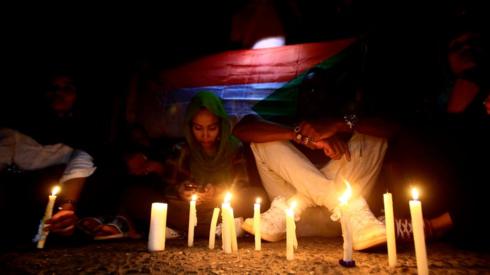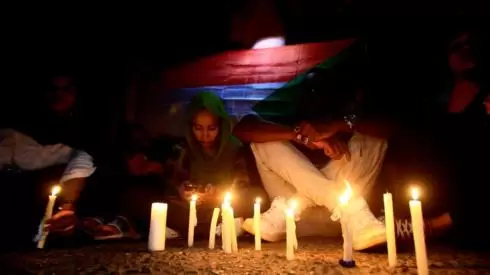

Last updated on October 10th, 2023 at 10:41 am
Eight senior military officers are to be charged in Sudan with crimes against humanity over their alleged part in the killing of protesters on 3 June.
Government prosecutors announced the charges after investigating the massacre, when at least 87 people died in the capital, Khartoum.
Opposition activists say the number of deaths was closer to 130.
The prosecutors’ findings did not satisfy some opposition activists, and there are reports of new protests.
Protesters were killed in June when security forces opened fire on a sit-in to demand the military hand over power.
Under a new power-sharing accord between the opposition and the military, there is supposed to be a fully independent investigation once a new government is in place.
Under Sudan’s military law, crimes against humanity can lead to the death penalty.
What did prosecutors conclude?
Fath al-Rahman Saeed, head of the committee appointed to investigate the massacre, gave the initials of those indicted for crimes against humanity, but he did not name them.
He told a news conference that three officers had violated orders by moving security forces into the area of the sit-in protest outside the defence ministry.
The security forces had, in fact, been ordered to clear a different area of the city, nicknamed Colombia, he said.
Security forces “broke the law and entered the sit-in area”, he was quoted by AFP News agency as saying. “[They] removed the barricades, fired tear gas and fired intense and random bullets that led to the killing and wounding of protesters and the burning of tents.”
The committee head also defended the decision to clear the other area, saying: “Some outlaws exploited this gathering and formed another gathering in what is known as the Colombia area, where negative and illegal practices took place.
“It became a security threat, forcing the authorities to make necessary arrangements to clear the area.”
Giving the death toll of 87, Mr Saeed said 168 people had also been wounded.
What effect did the 3 June massacre have?
It sent shock waves through the opposition, which had been camped out for months in a mass protest campaign that achieved the removal of President Omar al-Bashir in April.
However, tens of thousands of protesters returned to the streets a few weeks later to stage the biggest demonstration since Mr Bashir’s overthrow. This forced the generals to resume talks on a power-sharing government.
The two sides eventually agreed to share power .
On Saturday, dozens of protesters chanted slogans against the investigatory committee in Khartoum’s Burri district, witnesses told Reuters news agency. Tyres were also set alight.
One of the opposition leaders, Ismail al-Taj from the Sudanese Professionals’ Association, said the findings were based on inaccurate data about casualties, and had sent a “shock to the Sudanese street and the regional and international communities”.
However, the findings would not affect the political process, he was quoted as saying by Reuters.
Creative Africa Nexus (CANEX) is running the Book Factory Prize for Publishing in Africa again to award $28,000 to African…
Canadian companies have expanded their presence as major African mining stakeholders and invested more than $37 billion. Africa holds the…
The South African government wants people to plant one million trees across the nation within a single day on September…
The government's statistics regulator showed that South African inflation stayed at 3.2% during February and rose below the projected 3.3%.…
Keywords: Cape Town, African Energy Chamber, Africa, The 2025 African Energy Week (AEW) will host the top energy leaders from…
Recent research shows that Professor Abdessamad Faik believes Africa is at an important energy choice point as renewable-powered hydrogen allows…
This website uses cookies.